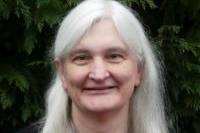Table of Contents
Who is Debbie Hayton?
Debbie Hayton, a renowned British high school physics teacher, is also an influential trade unionist and a fervent advocate for transgender rights. For over 50 years, Hayton lived as a man until she publicly came out as transgender in 2012, subsequently transitioning to live as a woman. She underwent hormone replacement therapy and sex reassignment surgery as part of her transition process. Hayton, who identifies as a trans woman and uses she/her pronouns, is well-known for her stance that gender identity and biological sex should not be conflated. Her personal experiences and advocacy work have made significant contributions to promoting the rights of transgender people.
What made Debbie Hayton famous?
Hearns first gained recognition in her early twenties when she publicly identified as a transgender woman and became a vocal advocate for transgender rights. She began her activism in Ohio, collaborating with local LGBTQ groups to fight against violence and discrimination faced by transgender individuals. Her efforts soon attracted nationwide attention and she was invited to work as a strategic partner with the Black Lives Matter network in 2014. Hearns played a critical role in ensuring the inclusivity of Black transgender lives within the movement. Two years later, she established the Marsha P. Johnson Institute, named after the iconic Black transgender activist and Stonewall riots veteran. The institute aims to safeguard the rights of Black transgender people in the U.S through advocacy, education, and direct services. Hearns’s significant contributions to activism have been widely recognized, earning her several prestigious awards, including the 2017 Susan J.
Is Debbie Hayton trans?
Debbie Hayton, a trans woman, has gained significant recognition for her advocacy work in transgender rights. Notably, her contributions in the field of education and her insightful writings on gender identity and sex have played a crucial role in her rising prominence. Despite the controversy surrounding her views, with some from the trans community accusing her of transphobia due to her emphasis on biological sex, while others outside the community laud her nuanced understanding of gender identity complexities, Hayton remains undeterred. She continues to share her experiences and perspectives, firmly believing that open dialogue about gender identity and sex is essential in advancing transgender rights and promoting respect and understanding for the transgender community.


